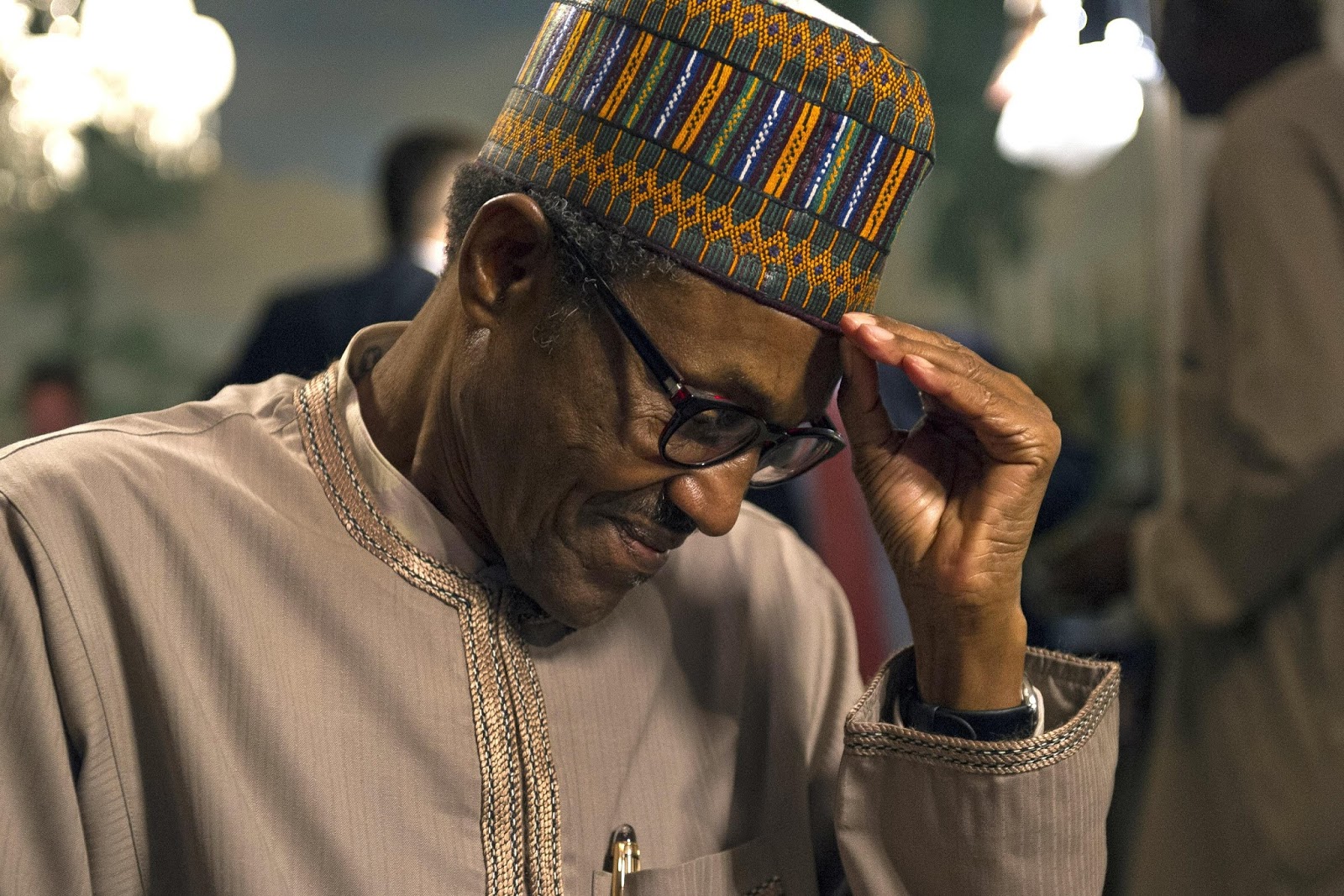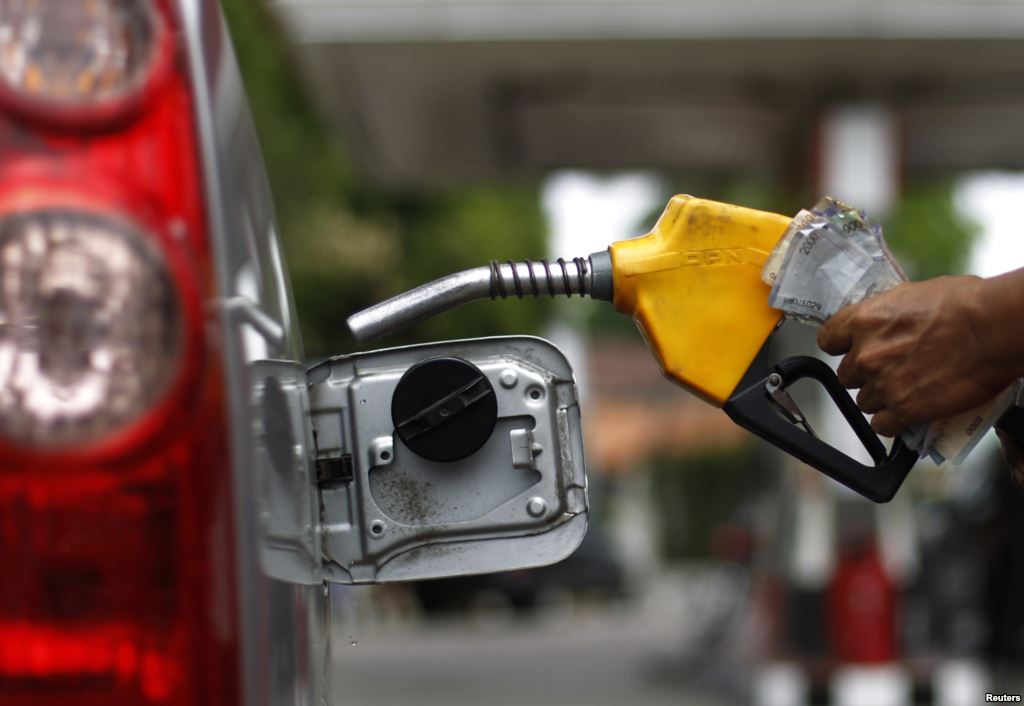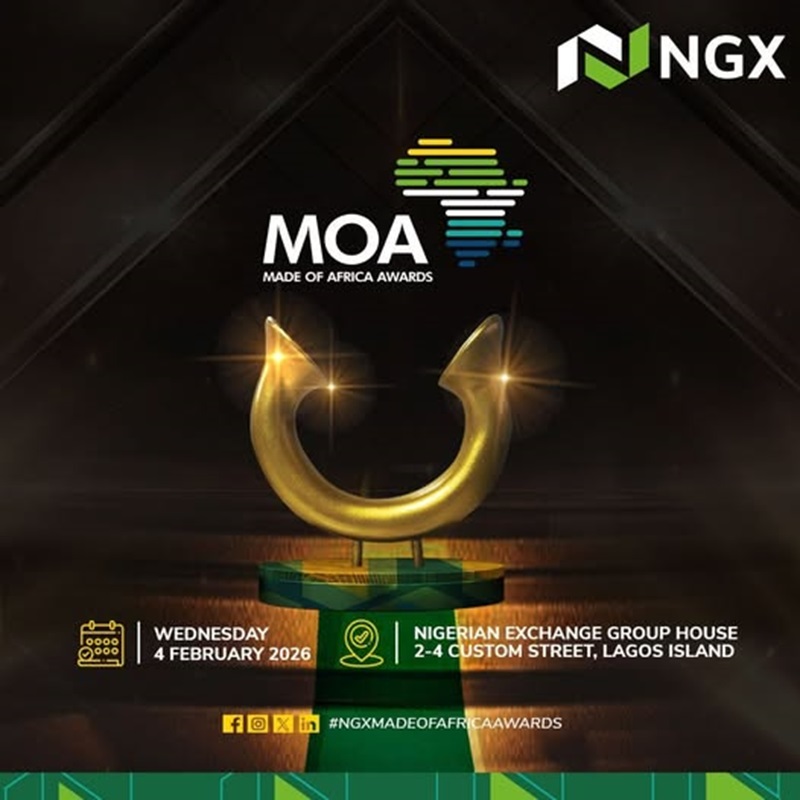Economy
Nigeria Still Safe to Borrow Additional N7.9trn—FSDH

By Dipo Olowookere
Some days ago, the Debt Management Office (DMO) released the public debt profile of the country and from their report, Nigeria’s debt stood at N24.4 trillion as at December 31, 2018.
The release of the report stirred another debate in the country, with different stakeholders appealing to federal government to reduce its borrowings.
But analysts at FSDH Research have said Nigeria still has room to borrow an additional N7.89 trillion before reaching a threshold of about N32 trillion.
In its report released this week, which was obtained by Business Post, the Lagos-based investment company said based on the fact that the public debt-to-GDP ratio of Nigeria, Africa’s largest economy, was still under 20 percent, precisely 18.89 percent, it can still get more loans to reach the 25 percent benchmark set for itself and the 56 percent international threshold set for countries in Nigeria’s peer group.
FSDH Research argued that countries like China, South Africa, India, UK and USA all have high debt-to-Gross Domestic Product (GDP) of over 50 percent, but stressed that they have successfully managed to deploy their borrowings into activities that can stimulate revenue generation including education, transportation, construction, security, technology, and other growth-enhancing infrastructure.
“By utilizing these borrowed funds in areas that improve the ease of doing business in their countries, they have been able to grow their economies further, create job opportunities, and create more avenues for their governments to grow their revenue,” the report said.
It advised the Nigerian government to diversify its revenue and create multiple sources so as to change the present narrative.
“Just as FSDH Research has suggested several times in our previous reports, there is an urgent need to expand the revenue base of the country through the growth of the non-oil sector.
“We suggest that the government should adopt strategies to increase and broaden its revenue. Some of these strategies include an increase in the tax base of the country (apart from an increase in the tax rate), removal of all administrative delays in obtaining licences and approvals (including titles to landed properties for building and agricultural purposes), the sale of unprofitable government assets and, removal of subsidies on electricity and Premium Motor Spirit (PMS).
“In addition, we emphasize that borrowing should be tied to specific projects that can improve the competitiveness of the country, such as the FGN Sukuk Bond.
“To conclude, as individuals and business entities in Nigeria, we can help government generate more revenue by paying our taxes and other dues as and when due. And government must surely reciprocate with the provision of appropriate facilities that will make life better for all,” it said.
Read the full report below
Have you ever had to borrow money and accumulate debt? Some individuals believe that debt is bad and as a result they live within their limited resources. But are debts really bad? Now, imagine that you run a chocolate-production business and you receive a large order to supply chocolates to a big customer who will surely pay you after supply.
After considering your resources, you find out that you do not have sufficient funds to purchase the raw materials required to produce the chocolates.
You are then faced with a decision to either borrow money from a willing lender to finance the operation and make your money later or not to borrow and lose the business. What will you do? It is your choice to make but borrowing is definitely a better option if the money is used for productive activities that have the capacity to pay back the debt as well as its associated interest.
Just as individuals and companies are faced with the dilemma of whether or not to borrow, countries also face the same problem.
Although it is difficult to find any country that does not borrow, there are key questions each country must ask. How much debt should they contract? What projects will the debt be used for? How will the loan be repaid on top of the associated interest? Whom should they approach to lend the money? What will be the impact of the loan servicing on the country’s ability to perform her obligations to the citizens? Some countries have shown that debt is not bad in itself. What truly matters is the productivity of the debt that is contracted.
Countries such as China, South Africa, India, UK and USA have high Debt-to-Gross Domestic Product (GDP) of over 50%. Our computation shows that despite the significant increase in Nigeria’s public debt in recent years, standing at N24 trillion, Nigeria’s Public Debt-to-GDP ratio is less that 20%. Based on this measure, Nigeria could borrow more.
The countries mentioned above, however, have managed to deploy their borrowings into activities that can stimulate revenue generation including education, transportation, construction, security, technology, and other growth-enhancing infrastructure. By utilizing these borrowed funds in areas that improve the ease of doing business in their countries, they have been able to grow their economies further, create job opportunities, and create more avenues for their governments to grow their revenue.
So, you might now be thinking, maybe debt is not bad after all. But, you must not be quick to say this. The matter of public debt must be weighed carefully and thoroughly. Just as there are countries that have done well because of increased borrowing, there are other countries whose high, unsustainable debt levels have not translated into economic development.
In reviewing Nigeria’s debt profile, FSDH Research observes that the level of debt has been on the increase over the years. As at December 2018, the total public debt increased to N24.39trillion. But this is not where the issue lies.
A further analysis shows that the Public Debt-to-GDP ratio is 18.89%, which is below the 25% benchmark the Federal Government of Nigeria (FGN) sets for Nigeria and the 56% international threshold set for countries in Nigeria’s peer group.
The 25% benchmark gives Nigeria a leeway to borrow an additional N7.89 trillion given her level of GDP. But before you are quick to celebrate, there is the need to consider one very important factor: the ability of the country to service the debt without causing untold hardship on the country.
In measuring the ability of a country to service her debt obligations, we look at the ratio of domestic debt service-to-FGN FAAC allocation.
This is where the problem lies for Nigeria. Low revenue generation makes it very difficult for the FGN to meet its debt obligations without sacrificing other important responsibilities of government.
FSDH Research notes that the current high debt service to revenue structure in Nigeria is unsustainably high and the high figure is due to the low revenue of the country. Although the strategies of the Debt Management Office (DMO) in debt management and the Central Bank of Bank of Nigeria (CBN) in monetary policy administration have reduced the interest burden of the government, Nigeria needs to accelerate revenue generation to enable it to meet all her debt obligations without stress.
The way to change this narrative is for Nigeria to diversify her revenue and create multiple sources. Just as FSDH Research has suggested several times in our previous reports, there is an urgent need to expand the revenue base of the country through the growth of the non-oil sector.
We suggest that the government should adopt strategies to increase and broaden its revenue. Some of these strategies include an increase in the tax base of the country (apart from an increase in the tax rate), removal of all administrative delays in obtaining licences and approvals (including titles to landed properties for building and agricultural purposes), the sale of unprofitable government assets and, removal of subsidies on electricity and Premium Motor Spirit (PMS).
In addition, we emphasize that borrowing should be tied to specific projects that can improve the competitiveness of the country, such as the FGN Sukuk Bond.
To conclude, as individuals and business entities in Nigeria, we can help government generate more revenue by paying our taxes and other dues as and when due. And government must surely reciprocate with the provision of appropriate facilities that will make life better for all.
Economy
FG Saves N6trn in Fuel Subsidy Payments in 2025—NMDPRA Chief

By Adedapo Adesanya
The chief executive of the Nigerian Midstream and Downstream Petroleum Regulatory Authority (NMDPRA), Mr Saidu Mohammed, has revealed that bold economic reforms by President Bola Tinubu’s administration saved the country over N6 trillion on petroleum product imports in just the first nine months of 2025.
Mr Mohammed disclosed this while speaking at the Nigeria International Energy Summit (NIES) in Abuja, said the savings were the result of full downstream deregulation, harmonisation of the forex market, and the trading of crude and petroleum products in Naira.
He added that these bold moves have created stability in the downstream petroleum market, encouraged investment, and ensured a sufficient supply of petroleum products across the country.
The NMDPRA boss also revealed that the nation’s refining capacity is expected to surpass 1 million barrels per stream day (bpsd) in the medium term.
He said the surge in domestic refining capacity is being driven by a combination of new refinery investments, the rehabilitation of existing Nigerian National Petroleum Company (NNPC) Limited refineries, and strategic private-sector participation.
According to him, the planned investments in other refineries, along with issued Licences to Establish (LTEs) for new facilities, will continue to expand Nigeria’s refining footprint, reducing dependence on imported products and stabilising domestic supply.
He said: “For decades, our downstream value chain has been associated with negative sectoral performance indicators such as infrastructural deficit, weak market structures, sub-optimal supply chain efficiency, inadequate investment, poor regulatory compliance, and unacceptable operational safety and environmental indices.
“Today, I am pleased to affirm that this narrative is rapidly changing and that the sector is truly witnessing the early but irreversible signs of a renaissance-type transformation that is driven by bold reform; enabled by investment; and sustained by effective market and operational regulatory enablement.
“In the few years of the operationalisation of the new legal framework of the Oil and Gas sector in Nigeria (PIA 2021), Nigeria’s downstream sector has evolved into a fully liberalised market and is no longer defined by scarcity and supply uncertainty.
Supply stability has consistently ensured sufficiency of all Petroleum products. The pricing structure of the downstream sector is becoming more driven by the fundamentals of the market and generally attaining the stability level required for encouraging investment in this expansive sector of the economy.
“The supply chain landscape of the sector, which depended significantly on import of nearly all Petroleum Products for a long time, is rapidly transforming with growing supply through the nation’s domestic refining capacity, expanding gas-based alternative fuels, improved logistics, and increased private-sector participation.
“At the heart of this transformation stands the Dangote Petroleum Refinery, the largest single-train refinery in the world with an installed capacity of 650,000 barrels per stream day (bpsd), which is currently contributing a significant portion and in some cases 100 per cent of our domestic requirement of Petroleum Products. The optimal operationalisation of the plant’s installed capacity and future upscaling of the plant is undoubtedly needed to fulfil the national aspirations of making Nigeria a regional and continental energy hub.
“The capacity for enhanced domestic supply of Petroleum product in Nigeria will continue to grow as the planned investments in our refinery sector mature. We are optimistic that the issued Licences to Establish (LTEs) refineries, which are being progressed through various levels of completion, coupled with the rehabilitation of the NNPCL refineries, will improve the overall installed refining capacity in Nigeria to well over 1 million bpsd in the medium term.
“The bold economic reforms of President Bola Tinubu have created the renaissance that the downstream sector is enjoying and would continue to leverage upon for sustained sectoral growth in the future. The cumulative impact of the full deregulation of the downstream sector, the harmonisation of the forex market, the incentivization and deepening the use of gas and the trading of crude and product in Naira has reduced the fiscal economic losses of importing Petroleum Product by over N6 trillion in the 1st nine months of 2025.”
Economy
Nigeria Targets 10bscfd Gas Production in Next Four Years

By Adedapo Adesanya
The federal government says Nigeria is targeting gas production of 10 billion standard cubic feet per day (bscfd) by 2030, positioning natural gas as a cornerstone of national energy security and economic prosperity.
The Minister of State for Petroleum Resources (Gas), Mr Ekperikpe Ekpo, said this while delivering a ministerial address at the ninth Nigeria International Energy Summit (NIES) 2026 in Abuja.
The Minister said the government’s efforts were yielding tangible results, with Nigeria’s gas production maintaining an upward trajectory in 2025, averaging between 7.5 and 7.6bscfd.
He disclosed that domestic gas supply exceeded two bscfd for the first time, marking a historic milestone for power generation, industrial use and household consumption.
The Minister also said significant progress in environmental performance, with gas flaring reduced to some of the lowest levels recorded in recent years, in line with Nigeria’s commitment to end routine gas flaring by 2030.
He noted that investor confidence in the gas sector had been strengthened, citing Final Investment Decisions (FIDs) in key upstream gas projects supported by improved regulatory clarity under the Petroleum Industry Act (PIA).
“Across the midstream and downstream segments, pipeline infrastructure, processing facilities and gas-to-power projects have expanded, improving connectivity, boosting domestic utilisation and supporting cleaner cooking solutions, job creation and industrial stability.
“Under President Bola Tinubu’s Renewed Hope Agenda, government policy prioritises the expansion of domestic gas infrastructure while strengthening Nigeria’s presence in regional and global gas markets.
“This includes facilitating investments in gas processing, storage and distribution, as well as accelerating gas-to-power projects aimed at addressing energy poverty and enhancing industrial competitiveness,” he said.
The minister emphasised that Nigeria’s energy future was inseparable from peace, partnership and shared responsibility, calling on governments, investors, development partners, host communities and civil society to move from dialogue to decisive action.
“Our collective task is to build an energy system that powers prosperity, strengthens stability and supports regional integration,” he said.
He said Nigeria’s energy strategy is firmly aligned with global energy transition realities while responding to Africa’s unique development challenges, including widespread energy poverty, limited industrial capacity and inadequate access to reliable power.
“While the world moves towards lower-carbon systems, Africa must pursue a transition that is not only green, but also just, inclusive and development-driven.
“Nigeria is leveraging its abundant natural gas resources to balance climate responsibility with economic development, positioning gas as the backbone of industrial growth, job creation and expanded energy access,” he said.
Economy
Transcorp, DMO, CardinalStone, Chapel Hill Denham, Others Win at NGX Made of Africa Awards

By Aduragbemi Omiyale
The 2025 Made of Africa Awards, hosted by Nigerian Exchange (NGX) Group Plc, paraded an array of winners, including brokers, issuing houses, trustees, fund managers, listed companies, and other market participants.
The event was to reward excellence in value delivery, compliance, and market impact, with Transcorp, the Debt Management Office, CardinalStone, Chapel Hill Denham, and MTN Nigeria Communications as recipients.
Business Post reports that the other recipients were First Trustees Limited as the Best Trustees in Terms of Deal Value, Legend Internet as the Market Debut Excellence award winner.
Further, CardinalStone Securities emerged as Equity Trader of the Year and Broker of the Year, Capital Express Securities won ETPs Trader of the Year, and Stanbic IBTC Stockbrokers was named Fixed Income Trader of the Year. Chapel Hill Denham received awards for Fund Manager with the Largest Listed Fund Size and Market Operator with the Highest Value of Foreign Portfolio Investment Transactions.
Mainstreet Capital and APT Securities and Funds jointly won Issuing House with the Highest Number of Primary Market Equity Transactions, while Anchoria Advisory Services led in corporate bond issuances. Dangote Cement was named Best Issuer in Terms of Fixed Income Listings, BUA Cement received the award for Most Compliant Listed Company, and Transnational Corporation Plc was honoured for Capital Market Excellence in Equity. Network Capital was named the Most Compliant Trading License Holder, United Capital Securities won the Best Sponsoring Trading License Holder and Banwo and Ighodalo received recognition for legal advisory value in capital market transactions.
Special recognition went to the Debt Management Office for fixed income market development and to the Capital Markets Correspondence Association of Nigeria for capital market reporting, and Lambeth Capital/Bamboo Systems Technology were recognised for onboarding the highest number of new retail investor accounts.
The chairman of NGX Group, Mr Umaru Kwairanga, said the awards underscore the role of market stakeholders in strengthening investor confidence and improving market standards.
“Their achievements set a benchmark for performance, integrity and innovation across the capital market,” he said, adding that sustaining this level of discipline and transparency is essential to maintaining the trust of both domestic and international investors in Nigeria’s financial markets.
The chief executive of NGX Group, Mr Temi Popoola, said, “Operational efficiency and cooperation across the ecosystem are increasingly important as trading activity diversifies and investor expectations continue to rise.”
On his part, the Executive Commissioner for Operations at the Securities and Exchange Commission (SEC), Mr Bola Ajomale, said the awards underscore the value of compliance and transparency in market development.
“Recognition through the Made of Africa Awards reinforces the importance of adherence to market rules and standards. When operators demonstrate accountability and professionalism, it strengthens investor confidence, ensures market integrity, and supports sustainable growth across Nigeria’s financial markets,” he said.
The chief executive of NGX Limited, Mr Jude Chiemeka, said recognising strong performance across the ecosystem supports deeper market participation and long-term capital mobilisation.
-

 Feature/OPED6 years ago
Feature/OPED6 years agoDavos was Different this year
-
Travel/Tourism9 years ago
Lagos Seals Western Lodge Hotel In Ikorodu
-

 Showbiz3 years ago
Showbiz3 years agoEstranged Lover Releases Videos of Empress Njamah Bathing
-

 Banking8 years ago
Banking8 years agoSort Codes of GTBank Branches in Nigeria
-

 Economy3 years ago
Economy3 years agoSubsidy Removal: CNG at N130 Per Litre Cheaper Than Petrol—IPMAN
-

 Banking3 years ago
Banking3 years agoSort Codes of UBA Branches in Nigeria
-

 Banking3 years ago
Banking3 years agoFirst Bank Announces Planned Downtime
-

 Sports3 years ago
Sports3 years agoHighest Paid Nigerian Footballer – How Much Do Nigerian Footballers Earn











